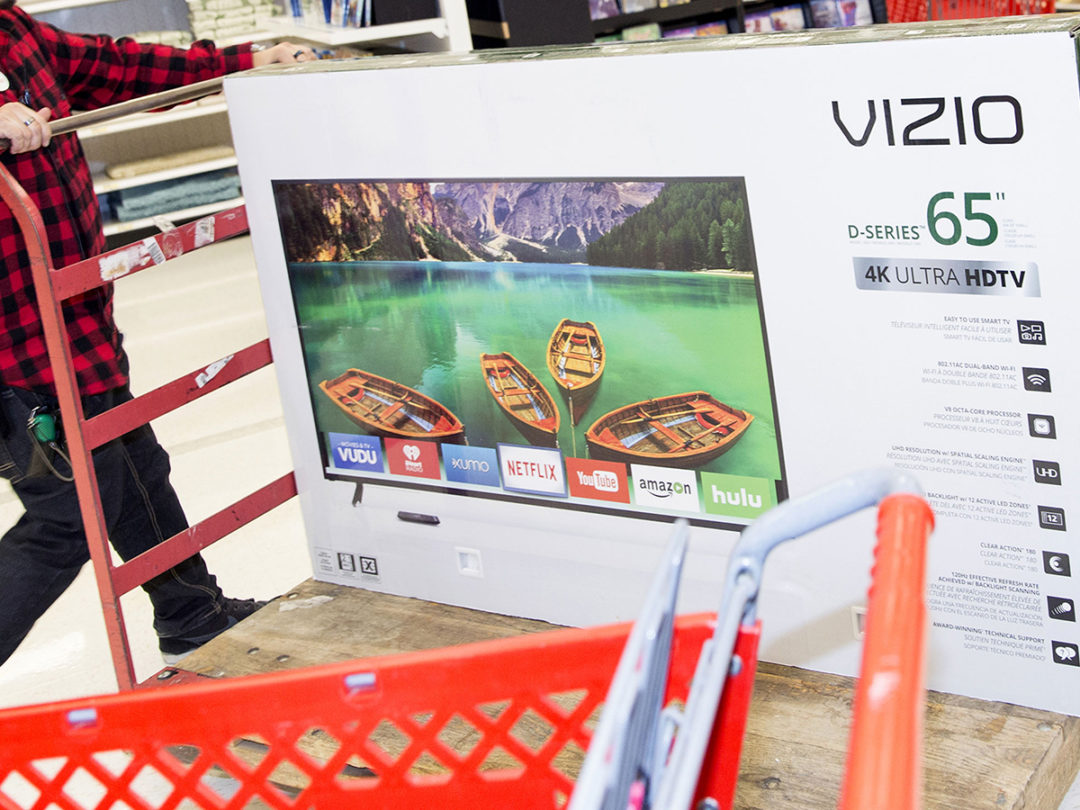
Visit Our Sponsors |
|
|
|
|
|
|
|
|
|
|
|
|
|
|
|
|
|
|
|
|
|
|
|
|
|
|
|
|
|
|
|
|
|
|
|
|
|
|

The formula for retailers on Black Friday is usually pretty simple: Cut prices, stock shelves, prepare for crowds and make sure orders arrive on time. This year — like everything in 2020 — it’s anything but.
America’s biggest apparel retailers and department stores are anxious ahead of the crucial holiday period. That’s because all the new tools they’ve hastily rolled out and scaled up amid the global pandemic, like in-store and curbside pickup and direct shipping from stores, haven’t really been battle-tested. So if they fail, an already disastrous year could get that much worse.
“These companies are used to somewhat regular patterns,” said David Silverman, a retail analyst at Fitch Ratings Inc. “All of that has gone out of the window.”
Companies have laid out how they’re getting ready: Kohl’s Corp. Chief Executive Officer Michelle Gass, for example, said she’s pushing shoppers to retrieve their online purchases at stores, instead of getting them shipped to their homes. This would relieve the company’s distribution centers. Old Navy CEO Nancy Green, meanwhile, said the budget apparel chain is shipping more products directly from stores to customers’ homes.
But it’s clear that this year is different. Levi Strauss & Co. CEO Chip Bergh has said he’s concerned enough about the potential crunch around the holidays that he may move the guaranteed ship-by date earlier than usual. That means the window of time around the holidays in which shipping times aren’t guaranteed, due to the high volume of orders, would start earlier this year.
Cause for Concern
Data show companies have cause for concern. More than half of U.S. shoppers said they wouldn’t buy from a store again if they were unsatisfied with the delivery experience, according to a September survey from Accenture. Online sales are expected to spike 33% to $189 billion, testing the limits of fulfillment networks across the U.S., according to Adobe Analytics.
Shares of Amazon.com Inc. and essential retailers like Target Corp. and Walmart Inc. have gained this year, while department stores and many apparel chains have slumped amid declining sales. Many of these non-essential retailers closed down during the lockdown earlier in 2020 and used that time to refine their e-commerce operations with an eye on the holiday season.
But Fitch’s Silverman said he’s concerned that new programs adopted by retailers may not be precise enough for them to accurately report inventory and limit delays and snags, which could potentially impact sales.
Additionally, consumer habits are changing dramatically during the pandemic, and many industry observers say that shifts toward e-commerce and socially distanced shopping methods could be permanent. So if shoppers don’t have a good experience, retailers risk losing them for good.
Department stores in particular want to keep shoppers happy. It’s been one of the worst performing areas in retail, and Macy’s Inc. and Kohl’s — both of which report earnings this week — have shed more than $7 billion in market value this year. The mandatory lockdowns erased millions in sales earlier this year.
Big-box stores Walmart and Target, which have benefitted from pantry loading this year, also report quarterly results this week. The latest round of disclosures is expected to shed light on how retailers are handling shipping and higher demand in the final weeks of 2020.
Companies should be ready for a flood of shoppers picking up orders, both inside stores and outside in the parking lot. Analysts at Adobe Analytics expect pickup lines to lengthen as Christmas approaches and usage of pickup options to spike 40% compared to last year, surpassing standard mail shipping as the most popular buying option.
At the same time, higher levels of e-commerce will strain traditional carriers like FedEx Corp. and United Parcel Service Inc., which retailers fear may limit shipping capacity from stores as orders ramp up. Both companies are preparing for elevated demand at the end of the year amid a rise in e-commerce.
Roadie, a crowd-sourced last-mile delivery platform that works with companies like Walmart, Home Depot Inc. and Tractor Supply Co., has been getting more calls from retailers asking for help to fulfill same-day orders. It now works with an additional 5,000 store locations — up more than 250% since the start of the pandemic.
“You will see a pretty large clog in the system once you get past Thanksgiving,” CEO Marc Gorlin said. “The burden is on retailers.”
RELATED CONTENT
RELATED VIDEOS
Timely, incisive articles delivered directly to your inbox.

